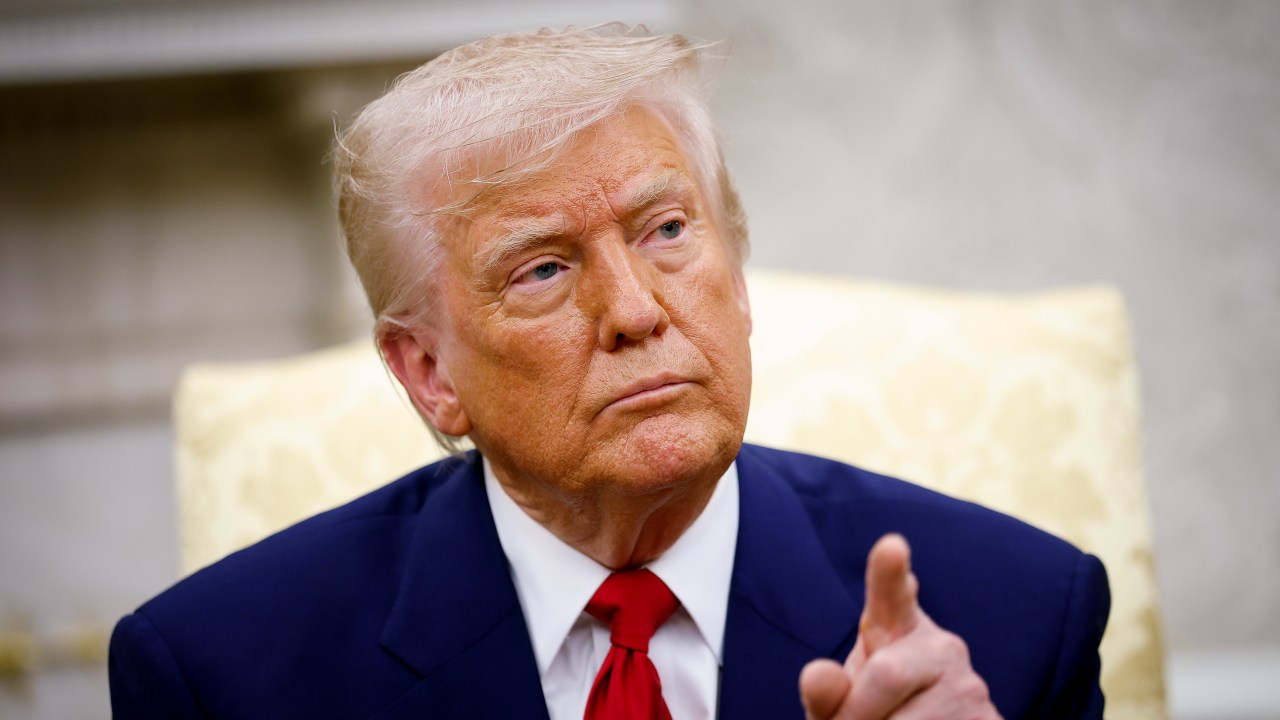Trump’s timely stock trading post ‘raises questions about ethics’
Donald Trump’s Truth Social post where he declared it is a “great time to buy” just hours before temporarily halting most tariffs "raises questions about ethics”, the Australian Shareholders’ Association CEO declared amid widespread market volatility.
Global markets have dived and shot up over the past week after Trump revealed sweeping tariffs on nations around the globe.
Investors finally felt some relief on Wednesday (US Time) when the US President revealed he would temporarily halt all tariffs, except on China, for 90 days to organise negotiations.
Just hours before revealing this and only minutes after markets opened in the US, Trump took to his social media platform with a message.
“THIS IS A GREAT TIME TO BUY!!! DJT” he wrote.

The move sparked concerns from many around the globe, including the ASA chief executive Rachel Waterhouse who doubted something like this would happen in Australia.
“I think here (politicians) try to stay very separate from the markets,” Ms Waterhouse told Business Now.
“They leave that alone, there are codes of conduct, there is disclosure even on their portfolios.
“This does raise questions around ethics, it raises questions around the ethics of the negotiation tactics, but also - can the president of a country potentially be buying stocks, making announcements and buying stocks and gaining?”
She pointed to regulations in Australia and the “culture of keeping” politics and markets separate, warranting concern about Trump’s action.
“I think there are a lot of questions and it would be interesting to see what does happen in America from this point forward,” Ms Waterhouse said.
The ASX 200 finished up about 4.5 per cent on Thursday after falling more than seven per cent since Trump’s announcement.
Japan’s Nikkei 225 rose more than nine per cent, while South Korea’s KOSPI rose 6.6 per cent and New Zealand’s NZX 50 jumped more than three per cent.
When President Trump made his "Liberation Day" announcements, Australia was hit with sweeping 10 per cent tariffs – the baseline levy - on all goods exported to the US, while many other nations suffered far worse.
Chinese-made goods faced an additional 34 per cent tariffs, bringing the total rate to 54 per cent, but that was hiked after China retaliated.
China hit back with its own 34 per cent tariffs, spurring a 50 per cent bump from the US, which was then reciprocated by China.

The US raised the tariffs to 125 per cent, while China’s tariffs on US imports sits at 84 per cent.
Before Trump halted the levies on other nations, the European Union was hit with a 20 per cent tariff and Japan with 24 per cent.
The economic turmoil sent the Australian dollar plummeting on Monday, sinking to a five year low of less than US60c.
It has since rebounded up to about US62c.
Add your comment to this story
To join the conversation, please log in. Don't have an account? Register
Join the conversation, you are commenting as Logout
Disclaimer: Investing carries risk. This is not financial advice. The above content should not be regarded as an offer, recommendation, or solicitation on acquiring or disposing of any financial products, any associated discussions, comments, or posts by author or other users should not be considered as such either. It is solely for general information purpose only, which does not consider your own investment objectives, financial situations or needs. TTM assumes no responsibility or warranty for the accuracy and completeness of the information, investors should do their own research and may seek professional advice before investing.
Most Discussed
- 1
- 2
- 3
- 4
- 5
- 6
- 7
- 8
- 9
- 10